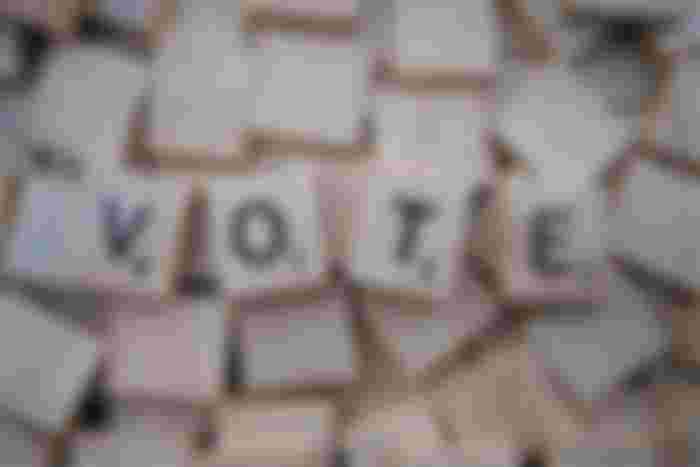For those who live in the USA, the recent 2020 election has been nothing short of a nightmare. Besides a race which was very close in regards to number of votes for each candidate, there were many issues with counting votes as well as accusations of fraud. Blockchain voting has been brought up as a remedy, but it is actually not a new idea. Many people balk at the thought because they think it sounds like something crazy, the reality is, it’s more efficient that the current system and it may be right around the corner.
Why Blockchain?
Many people confuse blockchain voting with online voting, thus thinking it is the same technology. This is far from the truth however. While online voting could easily enable everyday people to game the system and cast multiple votes, blockchain voting is done through a database which will only allow one vote per unique identity. And many researchers across the nation actually believe that implementing blockchain voting will cut back on voter fraud as a whole, which currently is believed to be a large problem by both parties.

The way blockchain voting would work is it would validate each individuals’ voting credentials. Most likely by a social security number. Then that person would be able to use a specified integrated app to cast their vote. If the same person tried to log in again and vote a second time, they would be unable to as their social would already be used. Of course, there will need to be security measures in place to ensure the person voting on the social security number is the person who holds that social security number, and thus there will be an identity verification system. This system could be as easy as entering your name, or perhaps scanning your ID such as a driver’s license. One blockchain app known as Voatz has already mastered this sort of verification system.
Blockchain voting not only helps the issue of voter fraud, but it also helps in the instances of overseas voters such as those in the military or who are living abroad, that would normally need to submit an absentee ballot. It also solves the problem of people who are currently unable to physically go to the polls due to a physical disability or the inability to drive. Of course, there is still the mail in ballot system, but as US citizens observed in this most recent election, the mail in system is slow, inefficient, and much in need of an update, and blockchain voting could possibly be that update.
Voatz
Many people are surprised to discover that there is already a blockchain voting platform out there, and it has already been tested in numerous markets. In fact, a number of local elections held by both the Democrats and Republicans have used this application with success. It was recently used in Arizona in May for their state convention, as well as both South Dakota and Michigan for their state conventions in August. Surprisingly, Utah allowed a number of their voters to use the app during the presidential election which occurred on November 3rd, 2020.
Voatz is revolutionary in that not only does it verify credentials of people before allowing them to vote, but it also casts their vote, and keep track of the results. No other electronic voting service on the market offers all of these features. Besides just creating a way in which to verify every vote which is cast, it allows users to do this from the palm of their hand. Yes, you read that right, Voatz offers a mobile app.
Of course, there has been a bit of controversy surround the Voatz app because when it was first invented, it was not in the form it is now and was able to be easily hacked. This of course, was prior to it being used in any of the elections listed above, and the CEO states this it has since been adjusted and improved to be resilient to such hacks. And in the months since, the study which found the weaknesses, which was carried out by MIT, has been found to have released biased results.

The Future of Voting
The U.S government seems to be, as a whole, against blockchain voting. Why is this? Well it could be possibly because there is voter fraud happening on both sides which favor the candidates. Either way, the US government has always been opposed to change, even changes which may be good for the country (remember how long it took some amendments to get passed?) so it isn’t likely that blockchain voting will be widespread any time soon. The other issue in the US is the average age of a politician is 57 years old. And according to the PEW Research Center, only 88% of adults 50-64 use the internet. And of those over 65 years old only 73% do. This means there’s over a 12% chance that the average individual making decisions for the country does not use the internet on a regular basis, or at all. And if someone doesn’t use the internet, there’s even less of a chance they know what blockchain is or how it functions.
But it’s likely that in ten, or maybe twenty years’ time, this will change. In 2020 alone the average age of politicians took a dive to 57 years old from its previous spot at 61 years old. And the number is dropping with each election. Blockchain technology is most certainly on the rise, and when you look at the history of the internet, it too took some time to catch on. At first, people thought it simply “would never be popular” and now, 30 years later, 98% of American’s hold a way to access the internet in the palm of their hands! Because of how inefficient this most recent election was, it’s likely US citizens could see an acceleration in the demand for blockchain voting technology, possibly by the next presidential election in 2024. This all depends on how the new president views and feels about it and if he pursues it or not.
Overall, blockchain technology in regards to voting is coming, and when it does, it will largely make voting less riddled with fraud and more accessible to the quickly aging population of the US. It may not be the Voatz app mentioned above, but blockchain voting will be revolutionizing the way in which we vote, and sooner rather than later.
This article was brought to you by the 100% provably fair online plinko game on MintDice. Originally posted on MintDice.com.


How to earn here